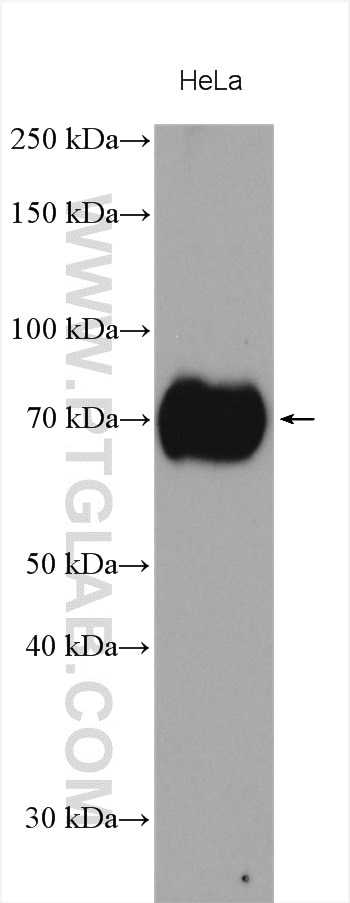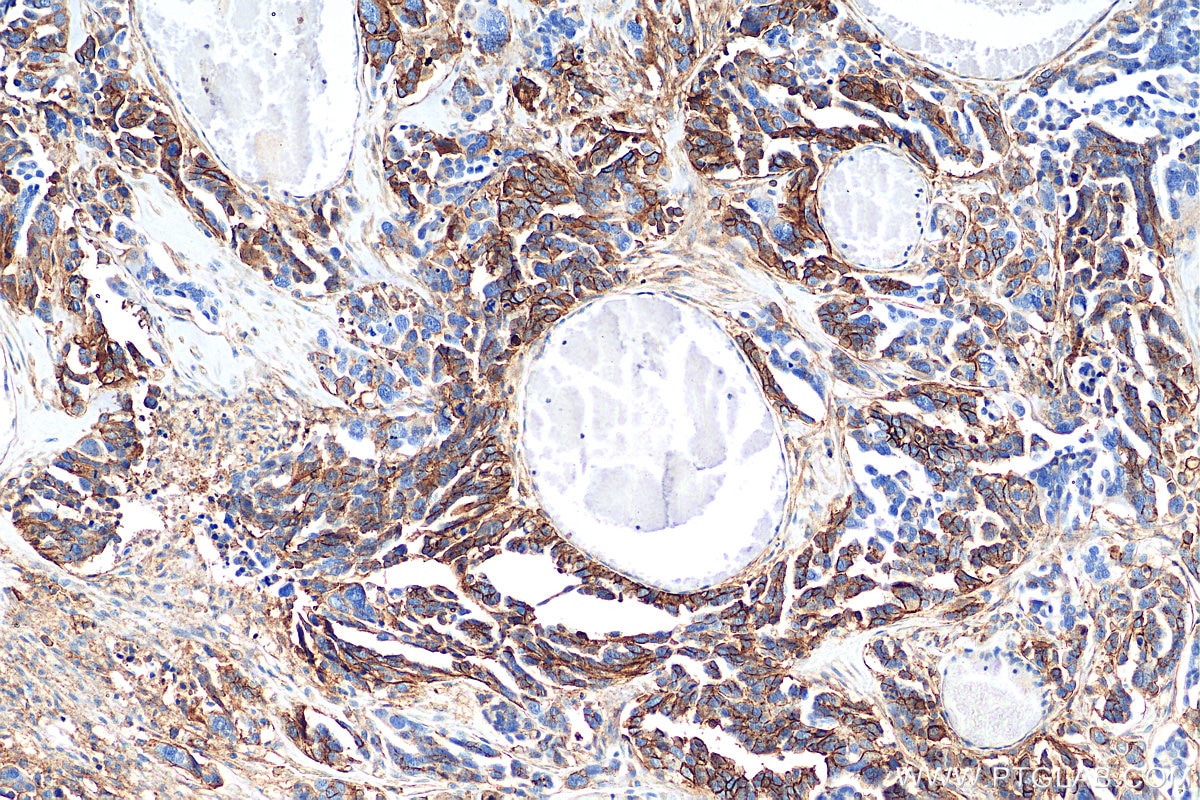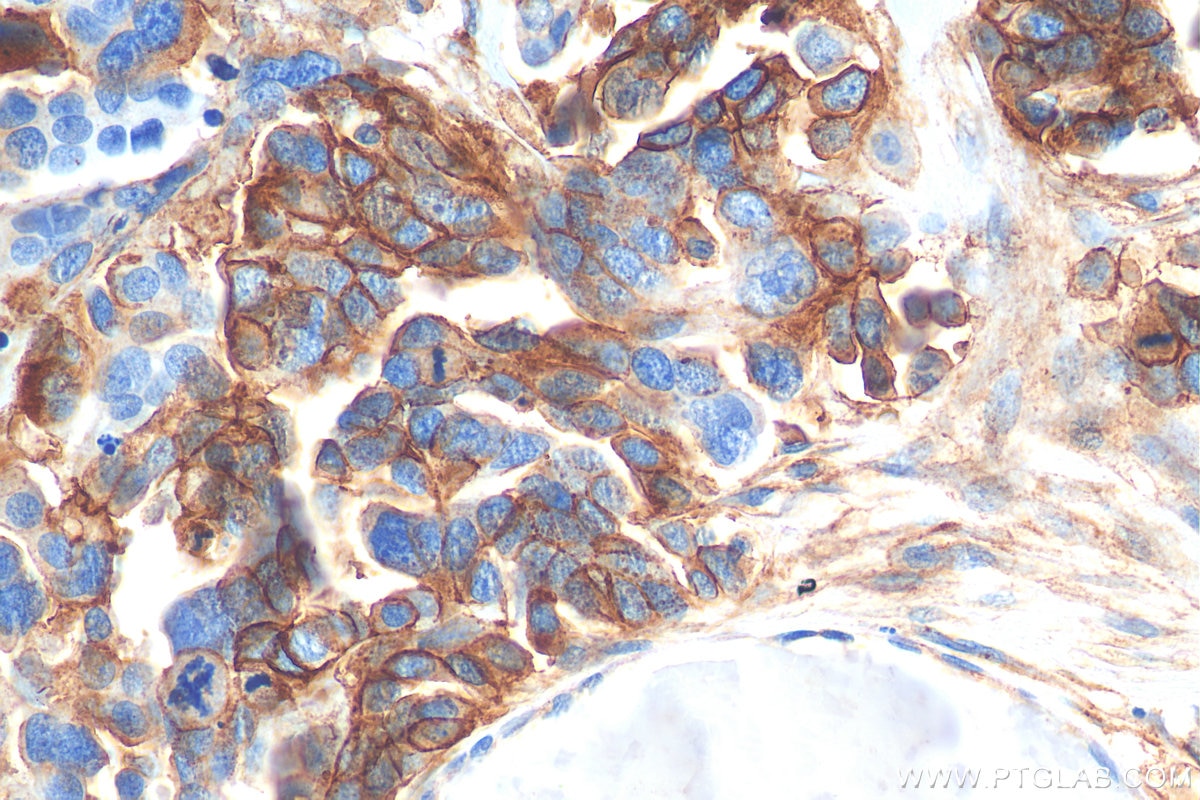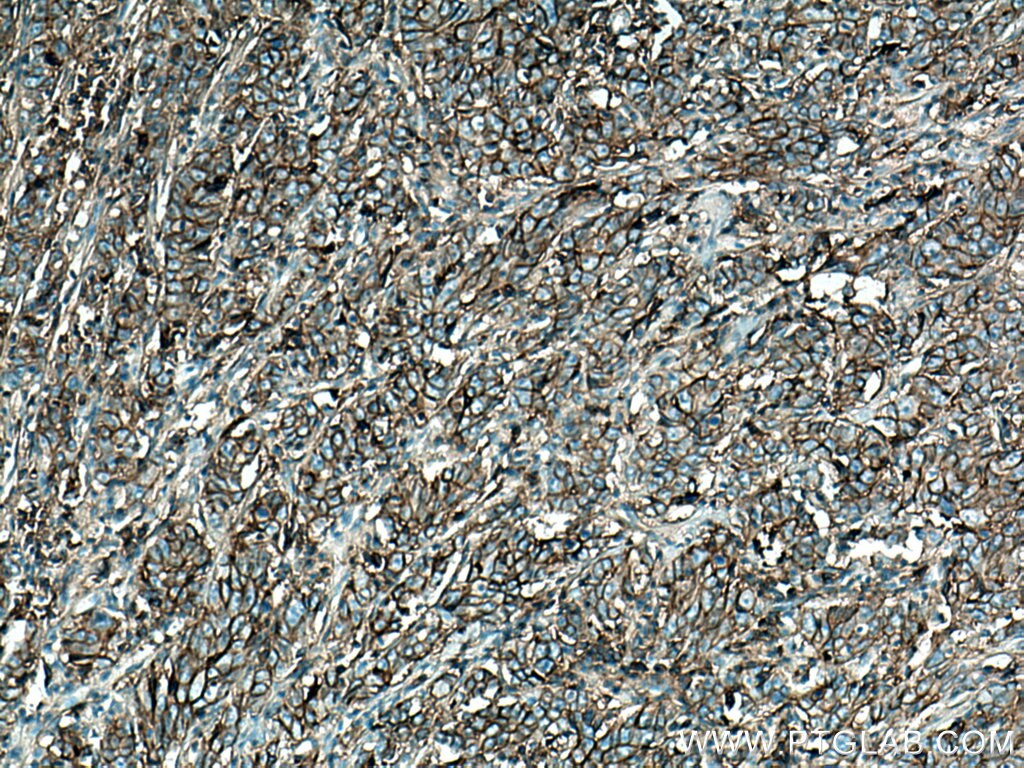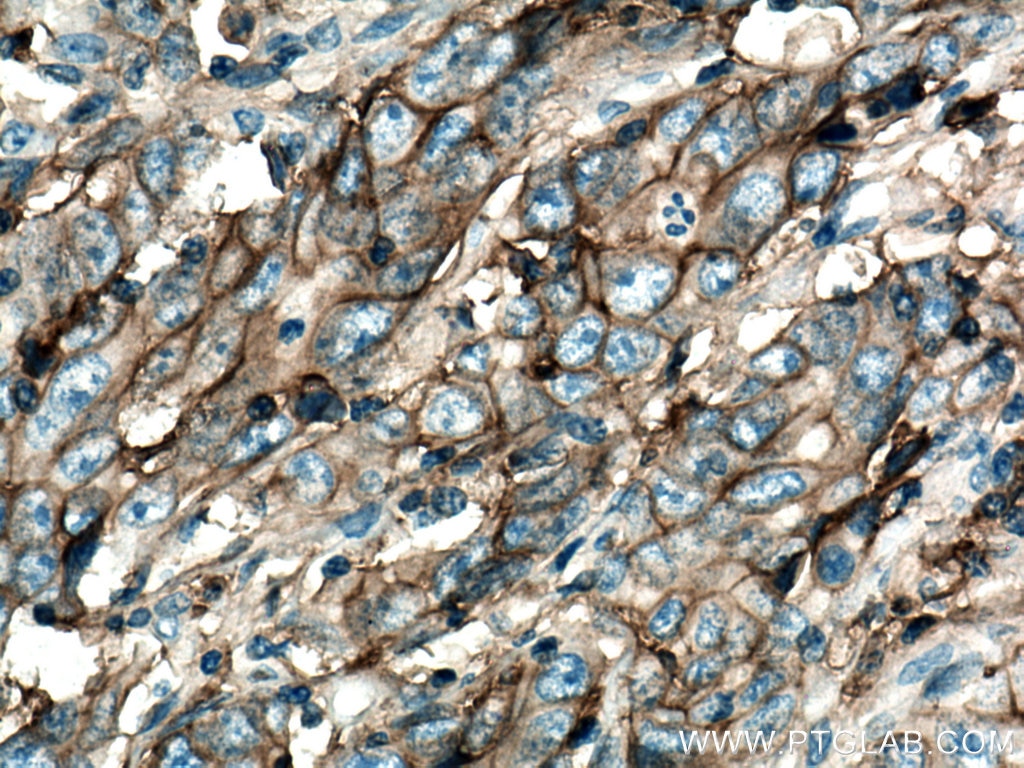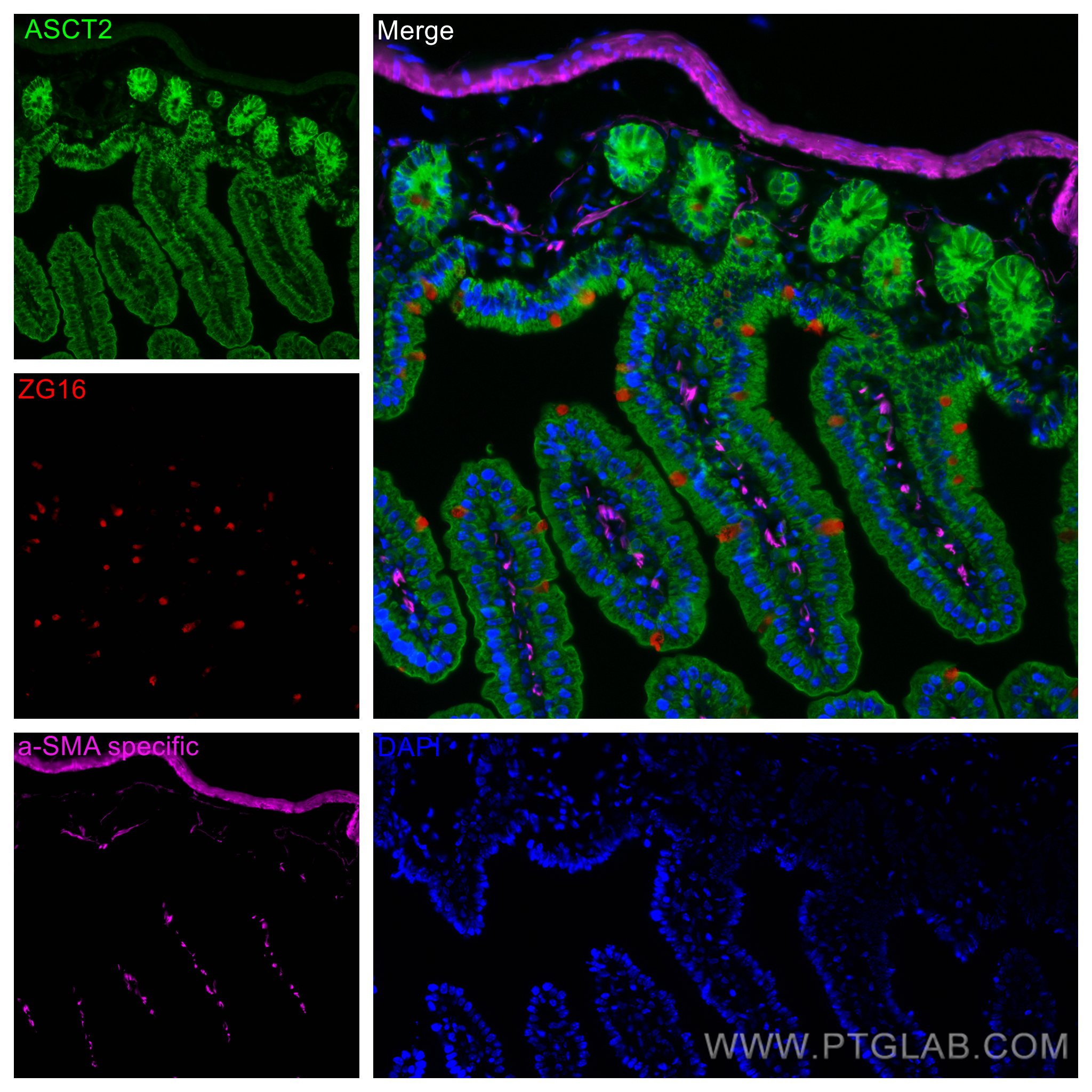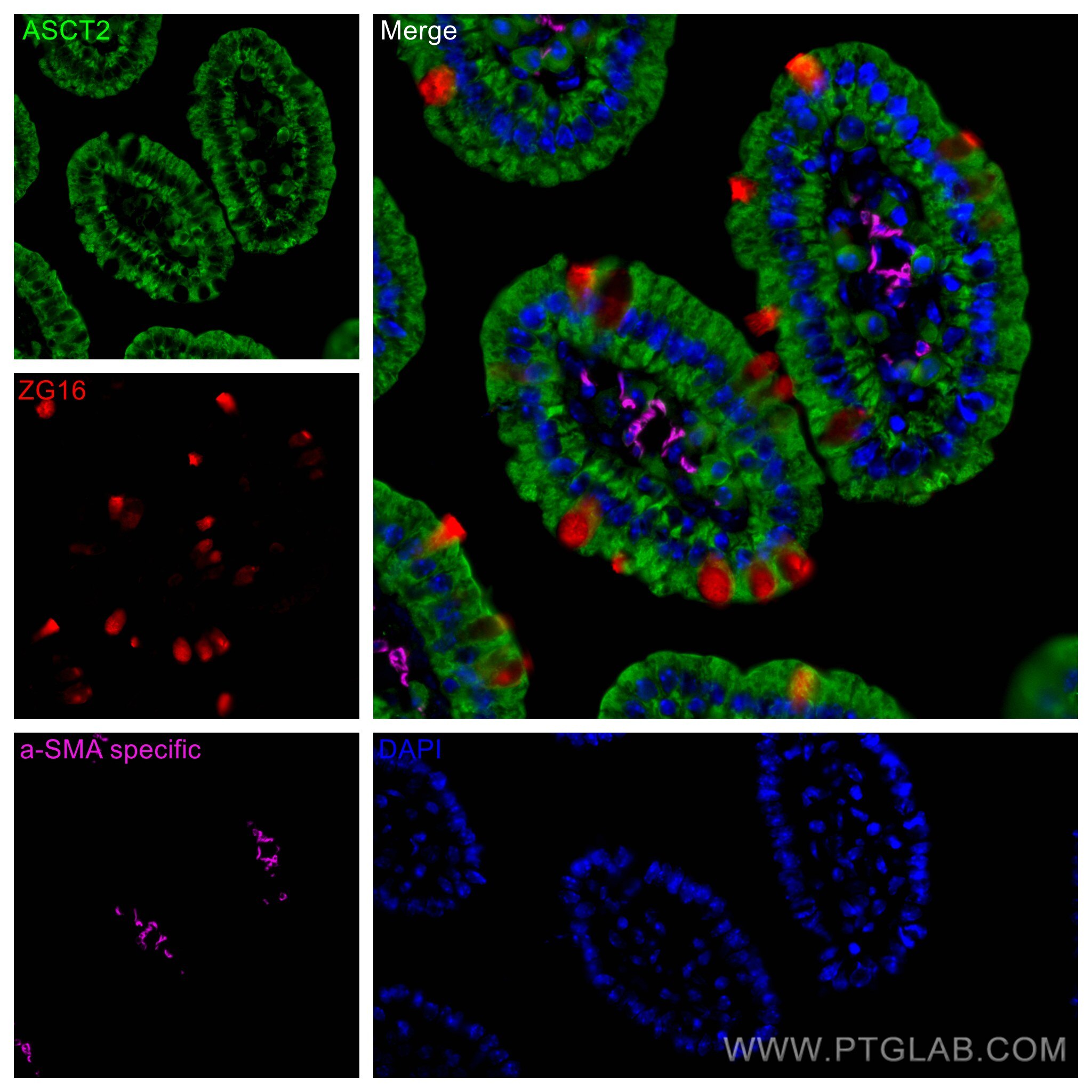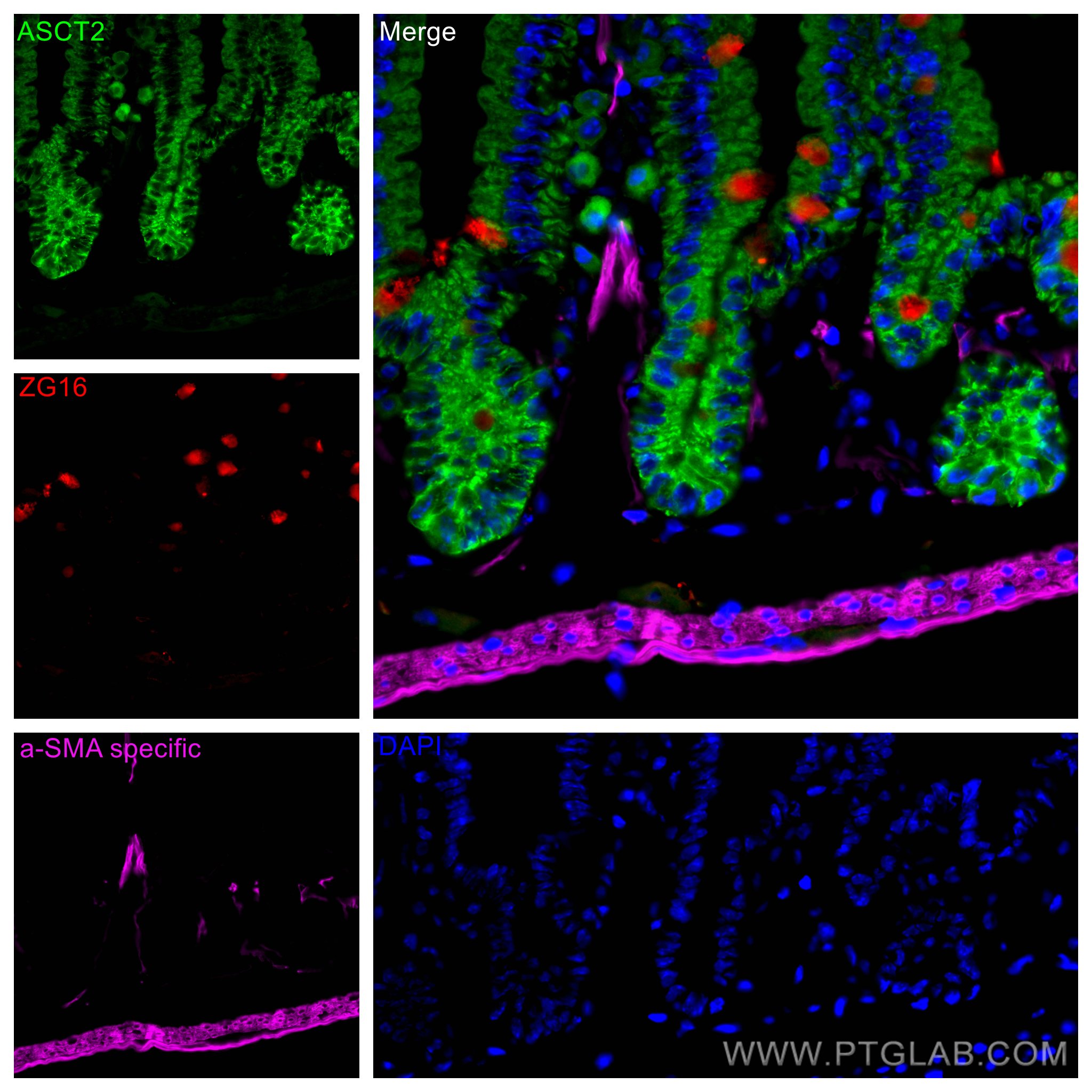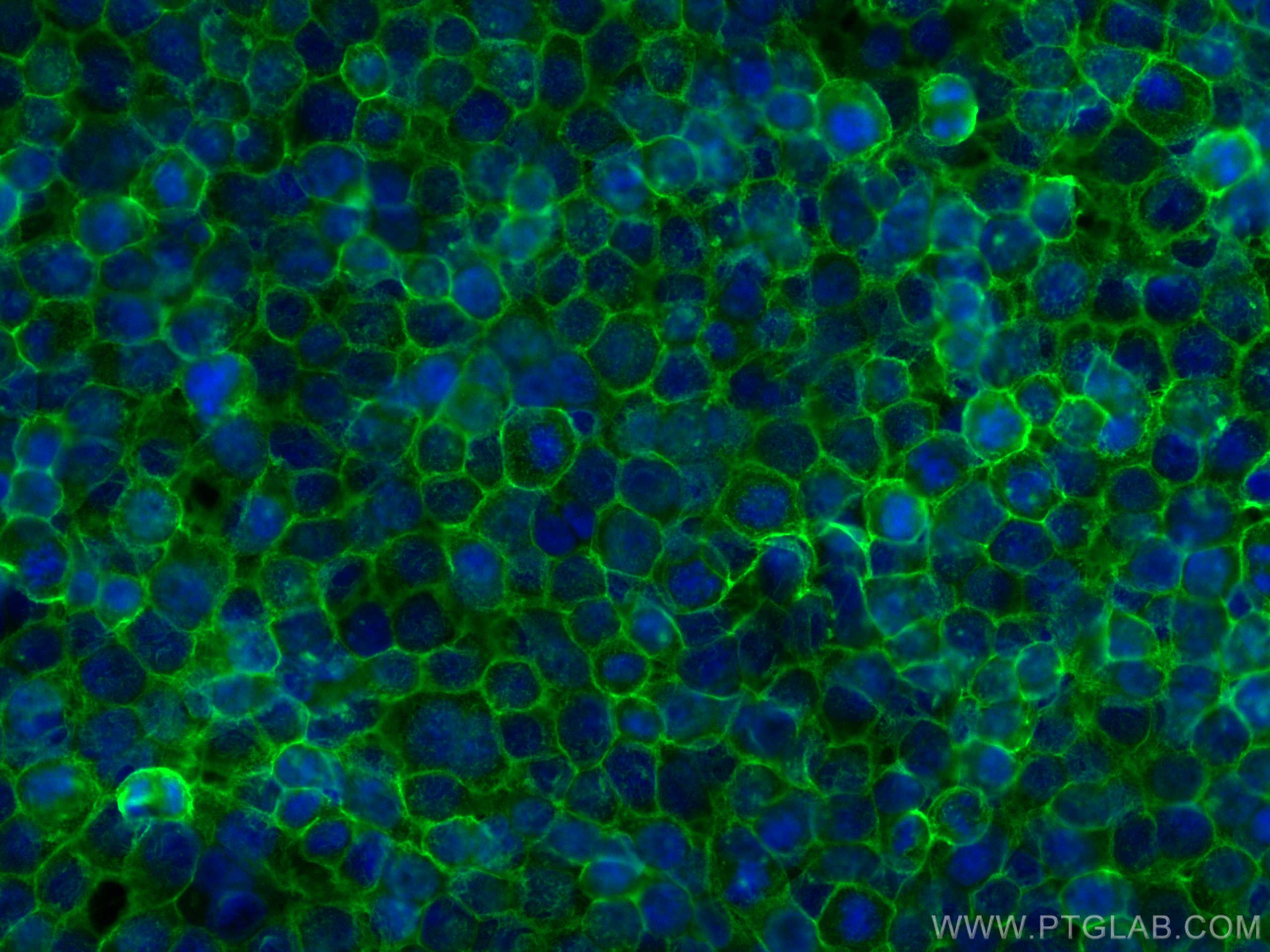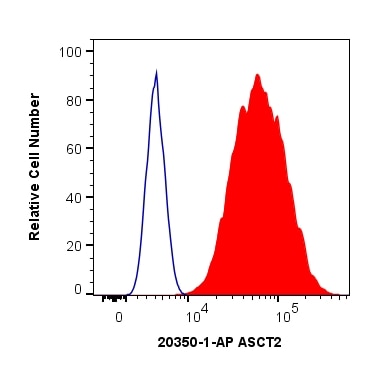- Phare
- Validé par KD/KO
Anticorps Polyclonal de lapin anti-SLC1A5/ASCT2
SLC1A5/ASCT2 Polyclonal Antibody for WB, IHC, IF/ICC, IF-P, FC (Intra), ELISA
Hôte / Isotype
Lapin / IgG
Réactivité testée
Humain, souris et plus (2)
Applications
WB, IHC, IF/ICC, IF-P, FC (Intra), ELISA
Conjugaison
Non conjugué
N° de cat : 20350-1-AP
Synonymes
Galerie de données de validation
Applications testées
| Résultats positifs en WB | cellules HeLa, |
| Résultats positifs en IHC | tissu de cancer du côlon humain, tissu de cancer de l'estomac humain il est suggéré de démasquer l'antigène avec un tampon de TE buffer pH 9.0; (*) À défaut, 'le démasquage de l'antigène peut être 'effectué avec un tampon citrate pH 6,0. |
| Résultats positifs en IF-P | tissu d'intestin grêle de souris, cellules HEK-293 |
| Résultats positifs en IF/ICC | cellules HEK-293, |
| Résultats positifs en FC (Intra) | cellules HeLa, |
Dilution recommandée
| Application | Dilution |
|---|---|
| Western Blot (WB) | WB : 1:2000-1:16000 |
| Immunohistochimie (IHC) | IHC : 1:400-1:1600 |
| Immunofluorescence (IF)-P | IF-P : 1:50-1:500 |
| Immunofluorescence (IF)/ICC | IF/ICC : 1:200-1:800 |
| Flow Cytometry (FC) (INTRA) | FC (INTRA) : 0.40 ug per 10^6 cells in a 100 µl suspension |
| It is recommended that this reagent should be titrated in each testing system to obtain optimal results. | |
| Sample-dependent, check data in validation data gallery | |
Applications publiées
| KD/KO | See 2 publications below |
| WB | See 18 publications below |
| IHC | See 3 publications below |
| IF | See 3 publications below |
Informations sur le produit
20350-1-AP cible SLC1A5/ASCT2 dans les applications de WB, IHC, IF/ICC, IF-P, FC (Intra), ELISA et montre une réactivité avec des échantillons Humain, souris
| Réactivité | Humain, souris |
| Réactivité citée | canin, Humain, porc, souris |
| Hôte / Isotype | Lapin / IgG |
| Clonalité | Polyclonal |
| Type | Anticorps |
| Immunogène | SLC1A5/ASCT2 Protéine recombinante Ag14182 |
| Nom complet | solute carrier family 1 (neutral amino acid transporter), member 5 |
| Masse moléculaire calculée | 541 aa, 57 kDa |
| Poids moléculaire observé | 55-70 kDa |
| Numéro d’acquisition GenBank | BC000062 |
| Symbole du gène | SLC1A5/ASCT2 |
| Identification du gène (NCBI) | 6510 |
| Conjugaison | Non conjugué |
| Forme | Liquide |
| Méthode de purification | Purification par affinité contre l'antigène |
| Tampon de stockage | PBS avec azoture de sodium à 0,02 % et glycérol à 50 % pH 7,3 |
| Conditions de stockage | Stocker à -20°C. Stable pendant un an après l'expédition. L'aliquotage n'est pas nécessaire pour le stockage à -20oC Les 20ul contiennent 0,1% de BSA. |
Informations générales
SLC1A5 (Solute Carrier Family 1, member 5), also named as ASCT2, a major glutamine transporter belonging to the SLC1 family and localized in the plasma membrane of several body districts. Consistent with the functions exerted by glutamine, SLC1A5 is involved in uptake of essential amino acids, activation of mTORC1 and glutamine-dependent tumor cell survival and growth. SLC1A5 is highly expressed in various malignancies and plays a critical role in the transformation, growth and survival of cancer cells (PMID: 30234109). High SLC1A5 expression is associated with poor prognosis in clear-cell renal cell carcinoma (PMID: 26599282).
Protocole
| Product Specific Protocols | |
|---|---|
| WB protocol for SLC1A5/ASCT2 antibody 20350-1-AP | Download protocol |
| IHC protocol for SLC1A5/ASCT2 antibody 20350-1-AP | Download protocol |
| IF protocol for SLC1A5/ASCT2 antibody 20350-1-AP | Download protocol |
| Standard Protocols | |
|---|---|
| Click here to view our Standard Protocols |
Publications
| Species | Application | Title |
|---|---|---|
Theranostics PPAR-γ integrates obesity and adipocyte clock through epigenetic regulation of Bmal1. | ||
Cell Biol Toxicol Degradation of HIF-1α induced by curcumol blocks glutaminolysis and inhibits epithelial-mesenchymal transition and invasion in colorectal cancer cells. | ||
Aging (Albany NY) The cross-talk between DDR1 and STAT3 promotes the development of hepatocellular carcinoma. | ||
Mol Ther Oncolytics Improving the Efficacy of EGFR Inhibitors by Topical Treatment of Cutaneous Squamous Cell Carcinoma with miR-634 Ointment.
| ||
Mol Ther Oncolytics Potential for reversing miR-634-mediated cytoprotective processes to improve efficacy of chemotherapy against oral squamous cell carcinoma. | ||
